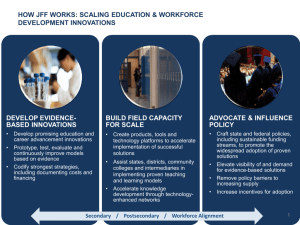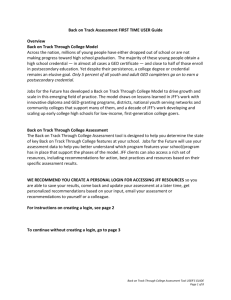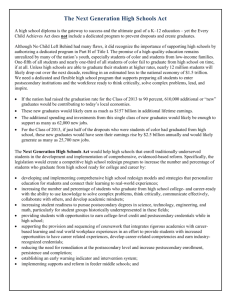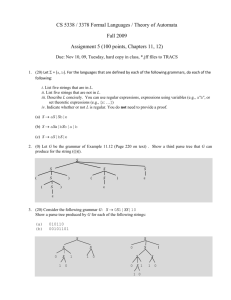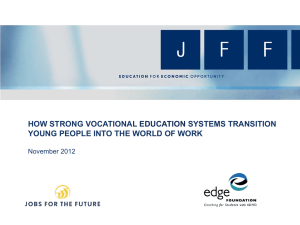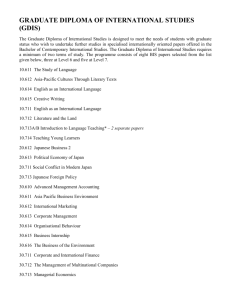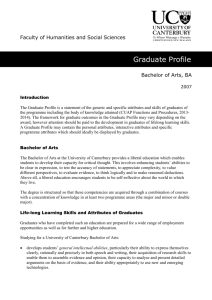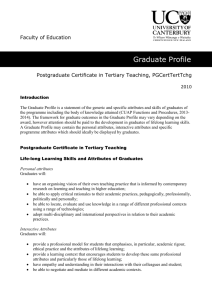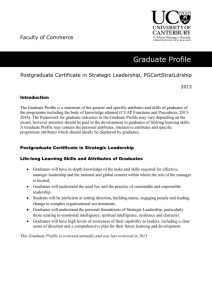print version - Jobs for the Future
advertisement
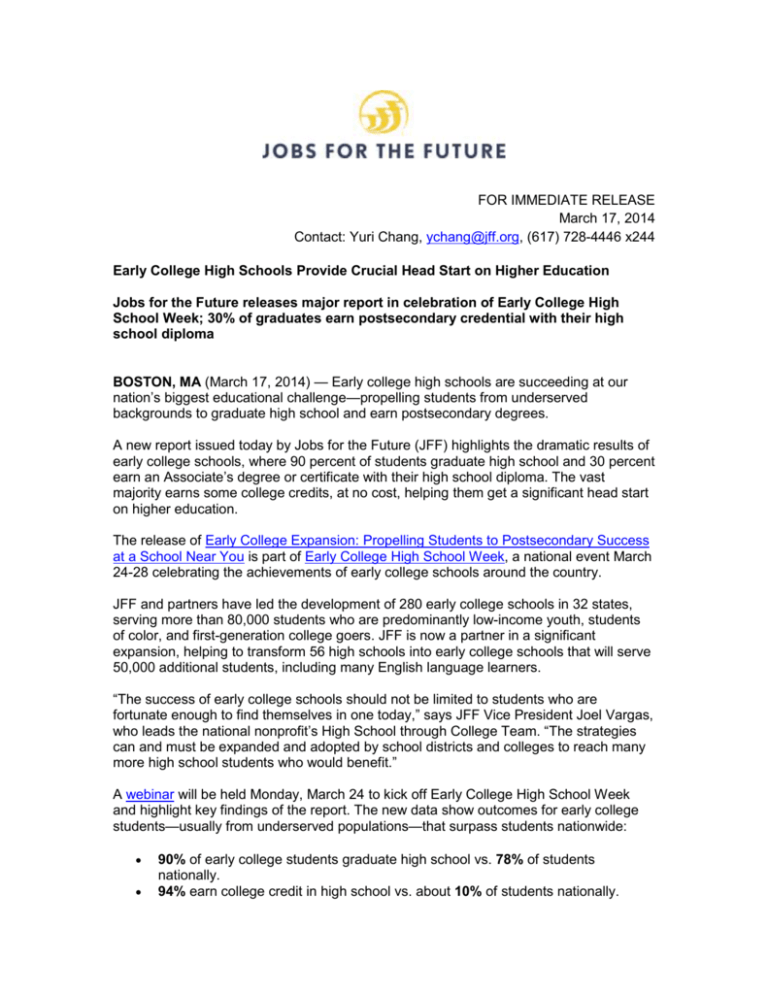
FOR IMMEDIATE RELEASE March 17, 2014 Contact: Yuri Chang, ychang@jff.org, (617) 728-4446 x244 Early College High Schools Provide Crucial Head Start on Higher Education Jobs for the Future releases major report in celebration of Early College High School Week; 30% of graduates earn postsecondary credential with their high school diploma BOSTON, MA (March 17, 2014) — Early college high schools are succeeding at our nation’s biggest educational challenge—propelling students from underserved backgrounds to graduate high school and earn postsecondary degrees. A new report issued today by Jobs for the Future (JFF) highlights the dramatic results of early college schools, where 90 percent of students graduate high school and 30 percent earn an Associate’s degree or certificate with their high school diploma. The vast majority earns some college credits, at no cost, helping them get a significant head start on higher education. The release of Early College Expansion: Propelling Students to Postsecondary Success at a School Near You is part of Early College High School Week, a national event March 24-28 celebrating the achievements of early college schools around the country. JFF and partners have led the development of 280 early college schools in 32 states, serving more than 80,000 students who are predominantly low-income youth, students of color, and first-generation college goers. JFF is now a partner in a significant expansion, helping to transform 56 high schools into early college schools that will serve 50,000 additional students, including many English language learners. “The success of early college schools should not be limited to students who are fortunate enough to find themselves in one today,” says JFF Vice President Joel Vargas, who leads the national nonprofit’s High School through College Team. “The strategies can and must be expanded and adopted by school districts and colleges to reach many more high school students who would benefit.” A webinar will be held Monday, March 24 to kick off Early College High School Week and highlight key findings of the report. The new data show outcomes for early college students—usually from underserved populations—that surpass students nationwide: 90% of early college students graduate high school vs. 78% of students nationally. 94% earn college credit in high school vs. about 10% of students nationally. 30% earn an Associate’s degree or other credential along with their high school diploma vs. very few students nationally. 71% of early college graduates enroll in college the semester following graduation vs. 54% of low-income graduates nationally. 86% of early college graduates who enroll in college persist for a second year vs. 72% of college students nationally. Millions of young people graduate from high school unprepared to succeed in college and today’s global economy. Early college high schools tackle the issue of college readiness directly, by enabling all students to start college coursework while still in high school. “Early college students are repeatedly proving that underrepresented students in higher education can graduate from high school on time and equipped for college success,” says Vargas. For more information about the events of Early College High School Week, go to www.jff.org and join the conversation on Twitter with #ECweek14. About Jobs for the Future Jobs for the Future works with our partners to design and drive the adoption of innovative and scalable education and career pathways leading from college readiness to career advancement for those struggling to succeed in today’s economy. The organization strives to fulfill the promise that education and economic mobility in America is achieved for everyone. Jobs for the Future works to ensure that all lower-income young people and workers have the skills and credentials needed to succeed in our economy, by creating solutions that catalyze change in our education and workforce delivery systems. jff.org Twitter: @JFFtweets ###
